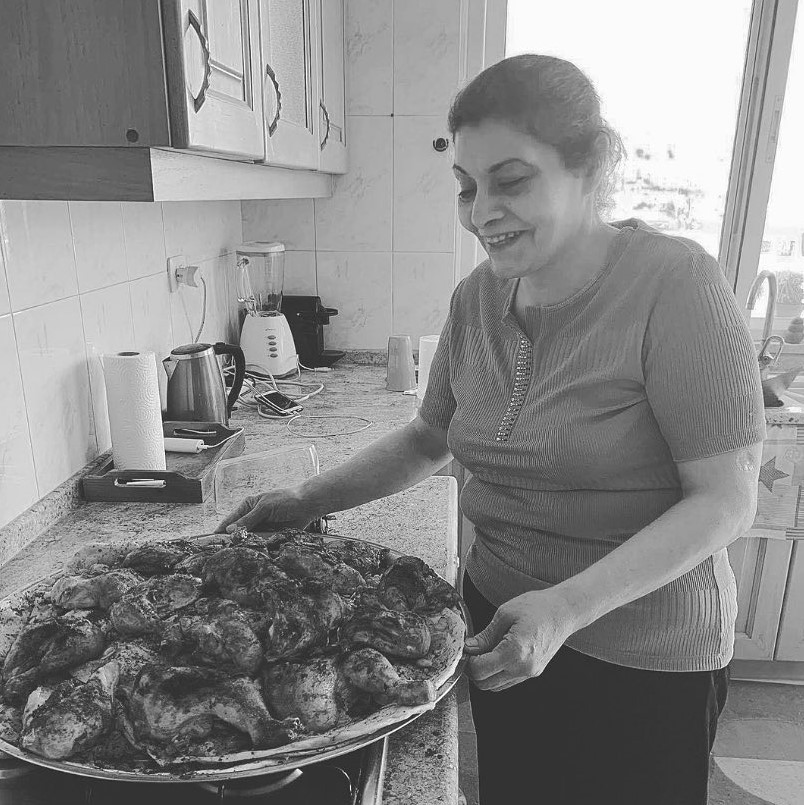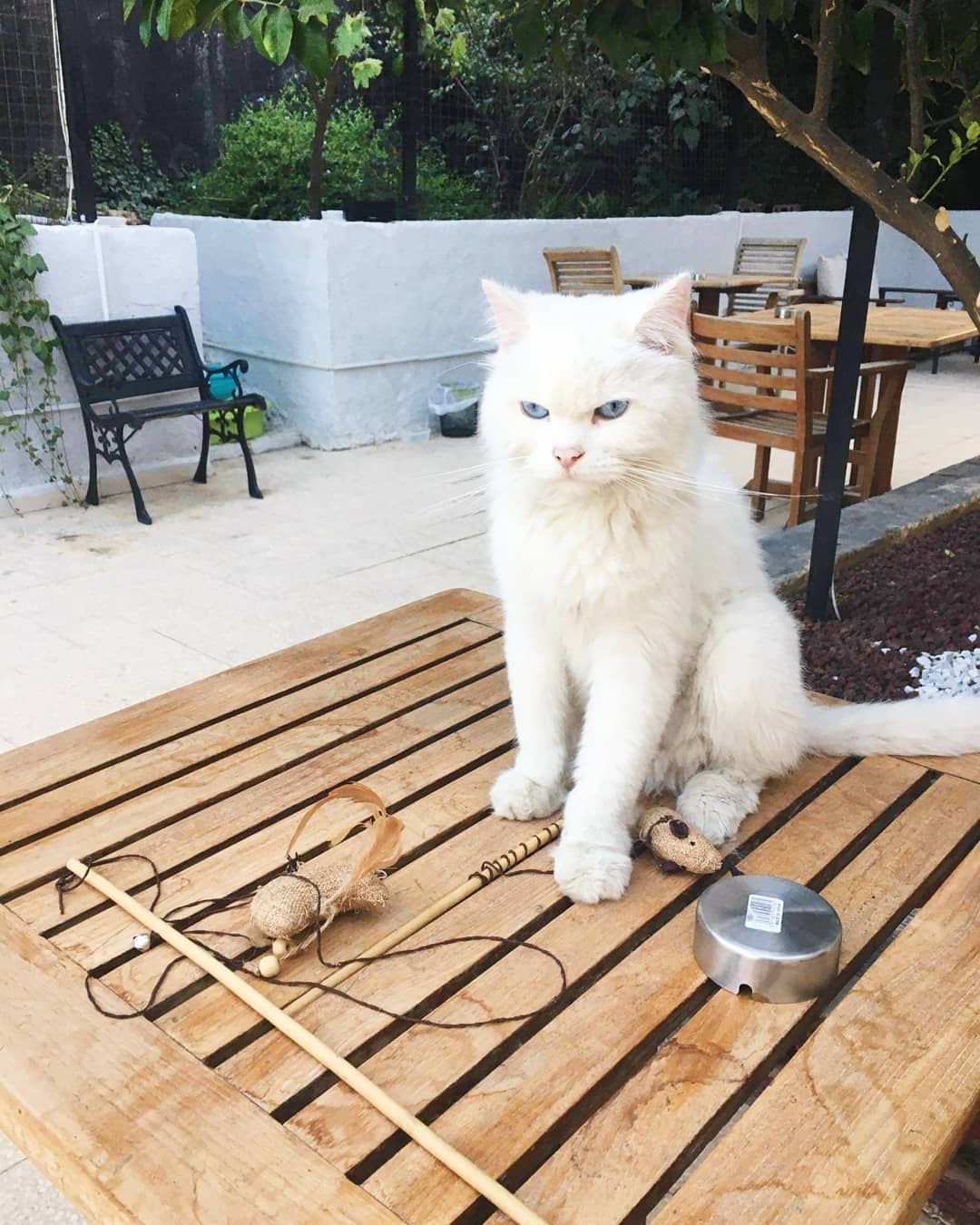1001 STORIES
1001 Stories is a series of interviews that share stories of incredible individuals from the MENA region. Through these stories, GRLبنت aims to further educate people around the globe about the lives and experiences of locals as they share their personal stories and perspectives on the social issues they face on a daily basis.
We are passionately working to amplify diverse perspectives with the hope that listening will lead to greater cross-cultural understanding and societal change. We aim to empower those whose voices are marginalized in order to deliver a more wholesome and complete narrative of an often misrepresented region.

Musakhan is a traditional Palestinian dish made with chicken, taboon flatbread, sumac, caramelized onions, roasted pine nuts, and served with soup/yogurt on the side. Musakhan is usually eaten by hand and is a popular dish throughout the Levant region.
Legendary mother and businesswoman, Jalwa Kilani, cooked for us homemade Musakhan. Jalwa is originally from Nablus, Palestine, but has lived in Amman for the past 30 years. She moved to Kuwait in 1977 and then to Jordan in 1991 due to the Gulf War.
She explained to us that Palestine is very famous for its’ olive oil and Palestinians cook Musakhan often during the olive season. Musakhan is a popular Palestinian dish since it was common for households to raise chickens, grow onions, and store olive oil in their homes. Therefore, Jalwa said that making Musakhan is an easy dish to make at home since they already have the fresh ingredients.
Jalwa’s Musakhan was delicious and the love that she has for sharing food with her family and friends showed in her cooking. As with so many other Arab dishes, make sure to save time for a nap after eating Musakhan!
Bast Space is a new cat cafe located in Weibdeh. The owner, Jad, sat with us to explain that he wanted to open a social enterprise rather than another shelter to rescue cats off the streets. The location of the cafe can be tricky to find since there is no sign, which is purposefully done to protect the cats interacting with people who enter the space coincidentally. Bast Space can be found on Google Maps and by calling the number directly for directions.
Jad opened Bast Space to be an informative space for discussions on the history of cat domestication, why people should adopt more cats etc. Jad is a veterinarian that neuters, vaccinates, and provides medication for cats in need.
Cat cafes are becoming popular social spaces in many countries and allow for homeless cats to live in a safe space and interact with their future owners. There are currently 10 cats at Bast Space that are all up for adoption, but Jad’s goal is to rescue 20 cats at a time.
Cats are a part of the identity of many cities in the Middle East, including Amman where cats are easily visible on every street. In some countries, the municipality and citizens understand that cats are a significant part of their cities' culture. Cats are better-taken care of in cities like Istanbul, whereas in Amman, there is less public tolerance and government initiatives for street cats. Jad believes that opening places like Bast Space can change this.
Even if you are not able to adopt a cat, this is a great way to be a part of Amman culture, enjoy your favorite drink, and give our furry friends the love & attention they deserve.

With so much international news covering the events taking place in Lebanon after last week’s explosion, we interviewed a Lebanese citizen living outside of Beirut to better understand the current situation happening on the ground.
Joey is a Lebanese Civil Engineer that has worked in the Bay Area for the past four years. He previously lived in Lebanon for 22 years and has been working remotely outside Beirut since July 1, 2020.
People are still grappling with the situation regarding the explosion and many people, including myself, have gone downtown to help clean up the damage. There are families that have experienced symptoms such as stomach issues and vomiting from the nitrate gases that existed in the air. But from my perspective, it has not been dangerous to go downtown since I, nor other volunteers experienced any symptoms. After the explosion, the immediate reaction of the people was to help one another, but now anger has led many to protest against the government.
There have been spontaneous, unorganized protests happening in the past two days. Most of the protesters are non-Hezbollah supporters and support other political movements. There are currently people being treated in hospitals after being shot by police with rubber bullets during the protests that were aimed towards the torso and face. Unfortunately, this is not the first protest that this has happened. This is a dirty way of dealing with the protestors which only escalates violence.
Lebanese citizens are participating in these large protests to show that many people are unsatisfied with the current situation and are demanding early elections from their government in order to elect a new Prime Minister and parliament. However, even if early elections were to take place, I believe there would not be drastic changes within the government for years since many people will not change their ideologies, allowing politicians to feel as though they are not to blame for the explosion and rather place blame on other political parties.
Read more
We chatted with American healthcare worker Payal to discuss COVID, masks, and healthcare in the U.S. during the pandemic. It’s abundantly clear that the U.S. has handled COVID-19 very poorly. As we have been watching the U.S. from Jordan for the past six months, we were eager to hear from someone on the front lines there.
Payal is a Medical Assistant at a health clinic in Fairfax, Virginia, USA. She has been working tirelessly to serve patients during the outbreak of COVID-19 in the United States.
“After COVID-19 hit in March, my work as a Medical Assistant at the clinic became more hectic and I received panicked phone calls from patients at the clinic. Initially, we were receiving patients at our clinic but would only hold a maximum capacity of three patients at a time. But in April, our clinic completely shut down and we transitioned to telemedicine. Doctors in the US are mostly from older generations and are not technologically savvy, leaving this older generation of doctors to be ill-prepared when it comes to telemedicine.”
I am only a Medical Assistant, but since COVID-19, I have had to handle patient finances with insurance companies since many will not cover the cost of COVID-19 treatment. American health care workers across the country have to fill in the gaps within hospitals and clinics due to shortages of staff and resources. For example, doctors not trained in emergency medicine have stepped in to treat COVID-19 patients in emergency settings.
Hospitals need more PPEs and are currently running low on medical supplies. During the first wave
Read more
Sondos | Gender & Sexuality Activist
Jordanians are demanding justice in the wake of the 'honor killing' of 30-year-old Ahlam, a Jordanian woman who was brutally murdered by her father in Amman. Her screams for help were heard by neighbors as she ran to the streets covered in blood, with her father chasing her and eventually beating her to death with a brick.
‘Honor killings’ have existed in Jordan for ages and the numbers continue to increase
Read more
Maaroof is a Palestinian factory worker living in Shiekh Danoun, a village near Nahariya, Israel. He shared with us his perspective on Israel’s West Bank annexation plans.
“Actually, we don’t know what the Israelis want, but from my observations, they want to weaken the Arab Government. Palestinians makeup around 2 million citizens in Israel and occupied territories, meaning we are powerful. The locations that they want to annex is where 20% of these 2 million Palestinians live. That means we would be less powerful and threatening to the Israelis. There is a high rate of violence amongst Palestinians in these areas, so annexation would lower Israeli resident’s exposure to violence. In addition, the areas that they want to take is a strategic location since Palestinians use this land for agriculture. The Palestinian side disagrees with annexation and is united against Israel. Arabs
Read more
To view more Solo Stories Click Here